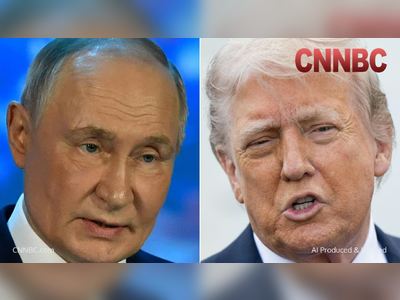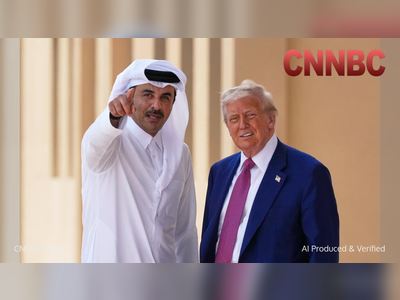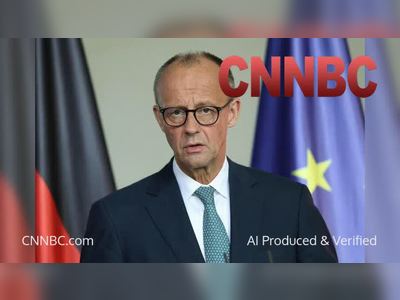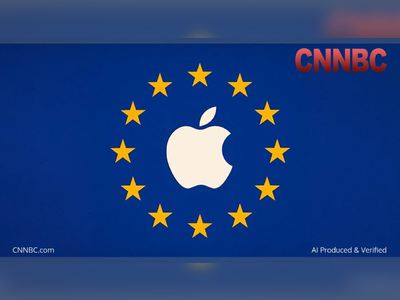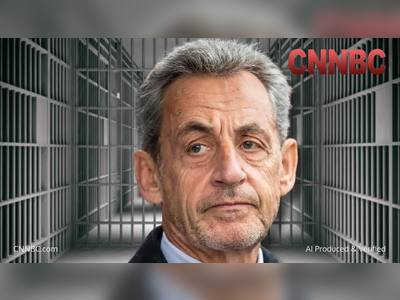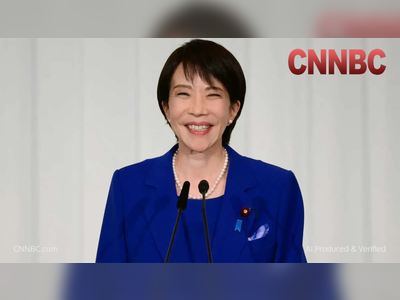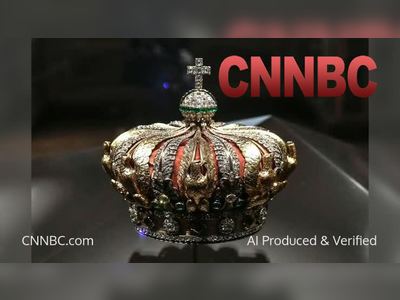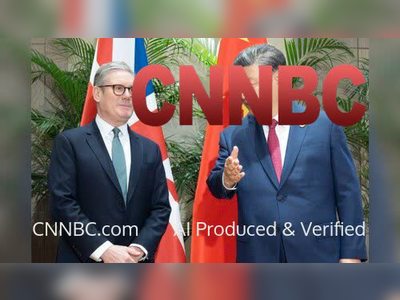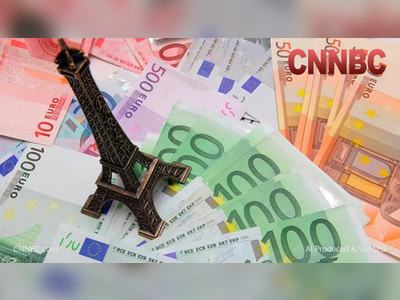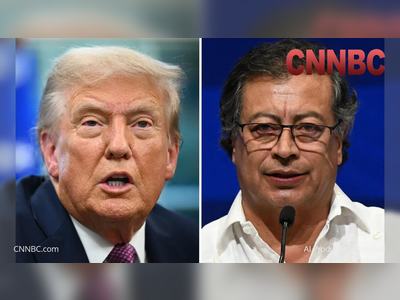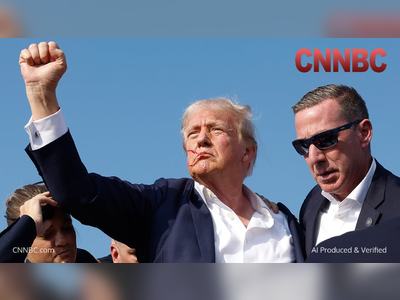China Presses Netherlands to “properly” Resolve the Nexperia Seizure as Supply Chain Risks Grow
Beijing warns The Hague the takeover of chipmaker Nexperia threatens global supply-chains even as ministers hold first official talks.
China has urged the Dutch government to treat the seizure of chipmaker Nexperia with urgency and fairness, warning that the Dutch intervention has put global supply chains at risk.
The call followed the first publicised ministerial-level discussion since the Netherlands took control of the Chinese-owned firm at the end of September.
On October 22 2025, China’s Ministry of Commerce released a statement revealing that Minister Wang Wentao spoke with Dutch Minister for Economic Affairs Vincent Karremans in a phone call initiated at The Hague’s request.
China emphasised that the Dutch move to seize management control of the Netherlands-based Nexperia, owned by China’s Wingtech Technology, had “seriously affected the stability of global industrial and supply chains”.
The Dutch government had effectively taken over the company on September 30, invoking the rarely used Goods Availability Act.
It cited “governance shortcomings” and concerns that management actions might allow the transfer of key technology or capabilities out of Europe.
Dutch officials said the intervention was “highly exceptional” but necessary to safeguard the continuity of semiconductor manufacturing on European soil.
In response, China imposed export controls on Nexperia’s Chinese operations and certain subcontractors as of October 4.
Beijing’s action immediately heightened concerns among automotive and electronics manufacturers that depend on the chips, which — although not the cutting-edge logic chips — are produced in large volumes and serve critical roles in vehicles and consumer devices.
During the call, Minister Wang urged the Netherlands to proceed “from the overall interest of maintaining global industrial and supply-chain security and stability,” to preserve the “spirit of contracts” and to function in a predictable, market-oriented and rule-based environment.
The statement also stated that China expected the Netherlands to protect the “legitimate rights and interests of Chinese investors”.
Minister Karremans, according to the Chinese read-out, affirmed that the Dutch government is ready to maintain close communication with the Chinese side and committed to seeking “a constructive solution” to the Nexperia issue.
He stressed that The Hague’s takeover was prompted not by alignment with U.S. policy but by specific concerns that the company’s former Chinese chief executive might relocate technology or intellectual property to China — risks that would undermine Europe’s supply chain capacity.
Analysts note that more than seventy per cent of Nexperia’s chips, produced in its German site in Hamburg, are shipped to Dongguan in Guangdong province, China, for final packaging and testing.
The export block thus threatens to interrupt a key industrial link between Europe and China.
Car makers including Volkswagen and BMW have started internal reviews of supply-chain exposure, though they report no immediate production disruption.
Beijing’s reaction frames the intervention as discriminatory.
The Chinese Foreign Ministry said that China “always opposes exaggerating the concept of national security and discriminatory measures targeting companies from certain countries,” and that it is “firmly determined to defend its legitimate rights and interests”.
The Dutch government’s intervention is the latest instance of European states invoking national-security arguments in strategic tech sectors.
Many analysts see the Nexperia case as part of a broader pattern of semiconductor geopolitics dominated by the United States and China.
The Netherlands’ action, while described as driven by governance concerns, emerges amid intense scrutiny of Chinese investment in Europe’s technology supply chain.
While day-to-day production at Nexperia is reportedly continuing, the dispute remains unresolved and now involves a high-stakes diplomatic negotiation between Beijing and The Hague.
The Netherlands and China are continuing talks, and both sides signal a willingness to engage — yet the export controls and seizure raise fresh questions about the resilience of global industrial networks in the face of geopolitical friction.
The call followed the first publicised ministerial-level discussion since the Netherlands took control of the Chinese-owned firm at the end of September.
On October 22 2025, China’s Ministry of Commerce released a statement revealing that Minister Wang Wentao spoke with Dutch Minister for Economic Affairs Vincent Karremans in a phone call initiated at The Hague’s request.
China emphasised that the Dutch move to seize management control of the Netherlands-based Nexperia, owned by China’s Wingtech Technology, had “seriously affected the stability of global industrial and supply chains”.
The Dutch government had effectively taken over the company on September 30, invoking the rarely used Goods Availability Act.
It cited “governance shortcomings” and concerns that management actions might allow the transfer of key technology or capabilities out of Europe.
Dutch officials said the intervention was “highly exceptional” but necessary to safeguard the continuity of semiconductor manufacturing on European soil.
In response, China imposed export controls on Nexperia’s Chinese operations and certain subcontractors as of October 4.
Beijing’s action immediately heightened concerns among automotive and electronics manufacturers that depend on the chips, which — although not the cutting-edge logic chips — are produced in large volumes and serve critical roles in vehicles and consumer devices.
During the call, Minister Wang urged the Netherlands to proceed “from the overall interest of maintaining global industrial and supply-chain security and stability,” to preserve the “spirit of contracts” and to function in a predictable, market-oriented and rule-based environment.
The statement also stated that China expected the Netherlands to protect the “legitimate rights and interests of Chinese investors”.
Minister Karremans, according to the Chinese read-out, affirmed that the Dutch government is ready to maintain close communication with the Chinese side and committed to seeking “a constructive solution” to the Nexperia issue.
He stressed that The Hague’s takeover was prompted not by alignment with U.S. policy but by specific concerns that the company’s former Chinese chief executive might relocate technology or intellectual property to China — risks that would undermine Europe’s supply chain capacity.
Analysts note that more than seventy per cent of Nexperia’s chips, produced in its German site in Hamburg, are shipped to Dongguan in Guangdong province, China, for final packaging and testing.
The export block thus threatens to interrupt a key industrial link between Europe and China.
Car makers including Volkswagen and BMW have started internal reviews of supply-chain exposure, though they report no immediate production disruption.
Beijing’s reaction frames the intervention as discriminatory.
The Chinese Foreign Ministry said that China “always opposes exaggerating the concept of national security and discriminatory measures targeting companies from certain countries,” and that it is “firmly determined to defend its legitimate rights and interests”.
The Dutch government’s intervention is the latest instance of European states invoking national-security arguments in strategic tech sectors.
Many analysts see the Nexperia case as part of a broader pattern of semiconductor geopolitics dominated by the United States and China.
The Netherlands’ action, while described as driven by governance concerns, emerges amid intense scrutiny of Chinese investment in Europe’s technology supply chain.
While day-to-day production at Nexperia is reportedly continuing, the dispute remains unresolved and now involves a high-stakes diplomatic negotiation between Beijing and The Hague.
The Netherlands and China are continuing talks, and both sides signal a willingness to engage — yet the export controls and seizure raise fresh questions about the resilience of global industrial networks in the face of geopolitical friction.

